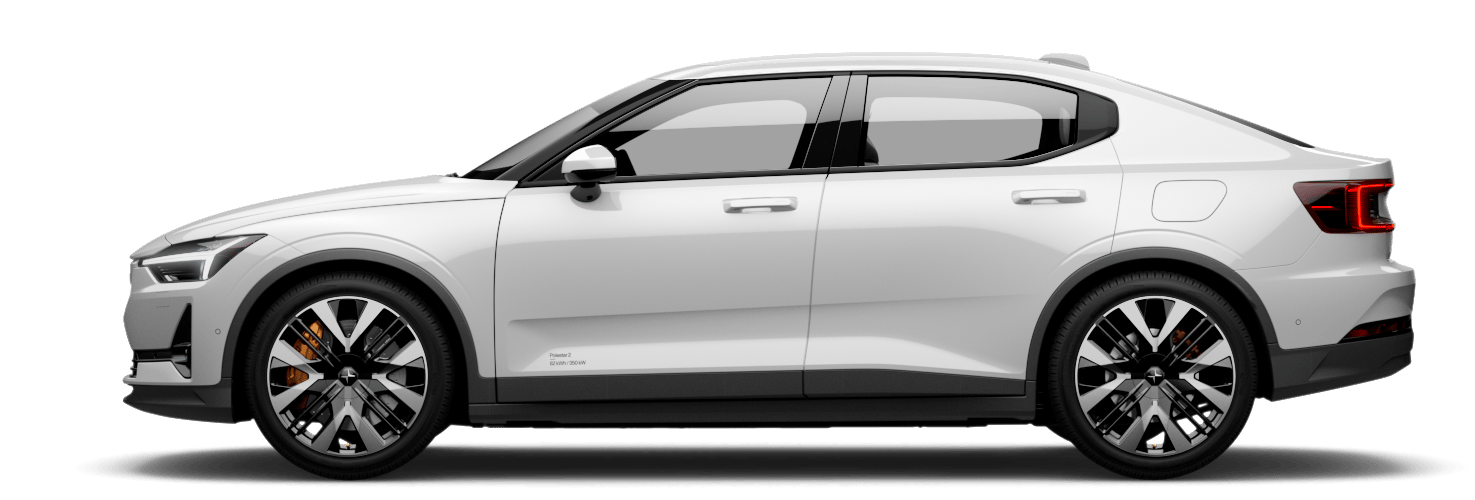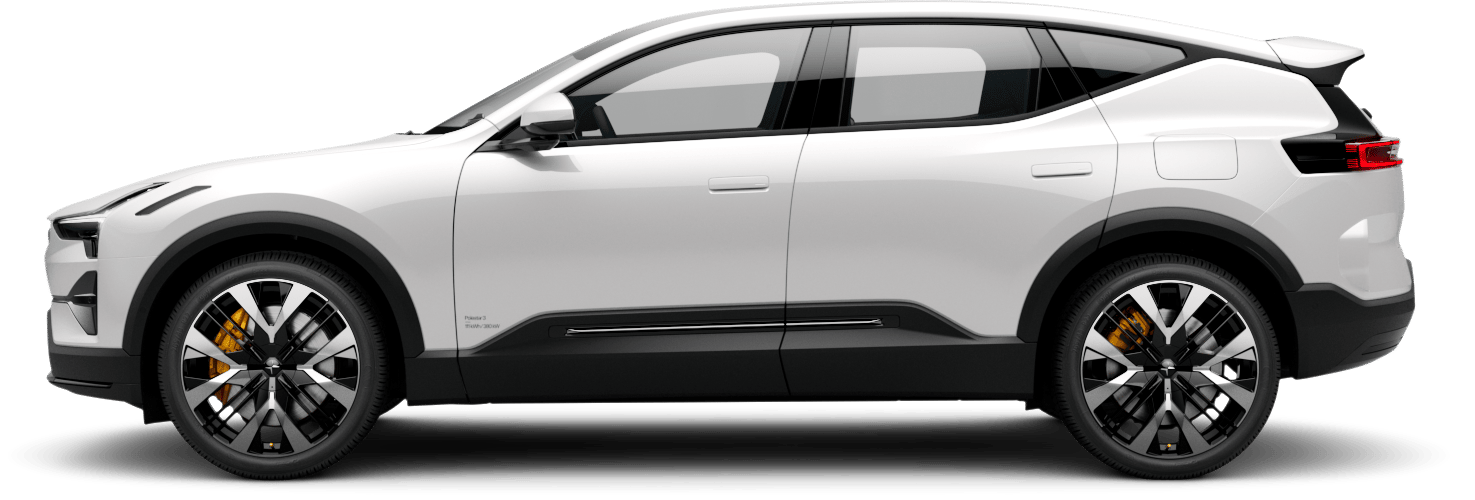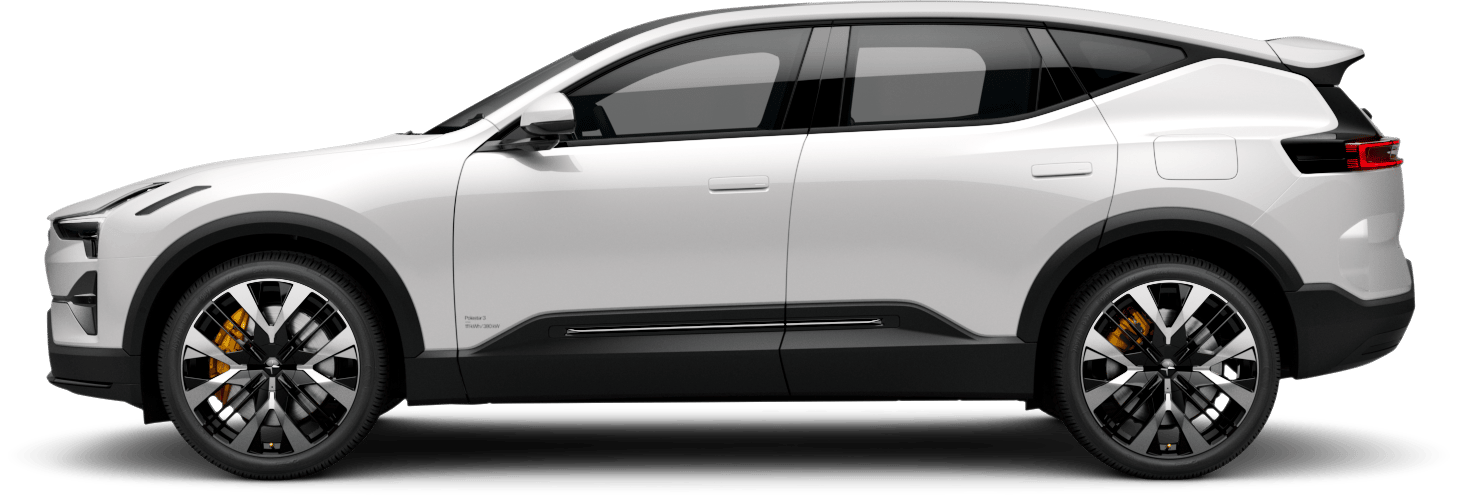Polestar carefully considers its materials usage on a basis of social and environmental impact. Take a closer look at the individual materials used to manufacture our cars.
Polestar carefully considers its materials usage on a basis of social and environmental impact. Take a closer look at the individual materials used to manufacture our cars.
We challenge ourselves and our suppliers to source innovative, more sustainable, and premium materials that minimise Polestar’s negative impact on the planet and its people.
We challenge ourselves and our suppliers to source innovative, more sustainable, and premium materials that minimise Polestar’s negative impact on the planet and its people.
The yarn in Polestar 4’s optional interior upholstery is made from 100% recycled PET waste. 3D-knitted fabric minimises waste with zero compromise on look and feel.
More wood, less waste. Reconstructed wood deco is made from reused birch wood, preserving as much natural material as possible, with a textured look courtesy of the wood grain. Features in Polestar 2.
Groundbreaking composites made from European-grown flax produce a material that’s 40% lower in weight, and uses 50% less virgin plastic, than the conventional alternative. Features in Polestar 3.
Our bio-attributed MicroTech is a luxurious new interior material. Its main components are PVC and partly fossil-based plasticisers. The PVC is 100% fossil-free as it is based on bio-naphtha, certified according to a mass balance approach¹. Recycled polyester is used in the carrier.
Carpets made from 100% ECONYL® polyamide, derived from discarded fishing nets and other plastic waste, feature in Polestar 3 and 4. Both cars’ interior headlining uses 100% recycled PET waste.
80% of the raw material sourced for Polestar 3’s aluminium deco panels comes from post-industrial waste.
Polestar 4 parts including the body, subframe, brake parts and seats make use of recycled steel from post-consumer and post-industrial waste.
Available in two colour options, the distinctive look of the wooden deco comes from the wood’s grain, which is treated to reduce material waste and emphasise its natural beauty. Used in Polestar 2 deco panels.
The overall carbon footprint of all materials used is reduced when supplier facilities are powered by renewable energy sources such as solar and wind.
The overall carbon footprint of all materials used is reduced when supplier facilities are powered by renewable energy sources such as solar and wind.
To this end, we identify supply chains with high energy usage, such as those of aluminium and batteries, and work alongside our suppliers to increase the share of renewable energy used in manufacturing. For example, 1.2 tonnes CO2e has been cut from the overall carbon footprint of Polestar 2 Long range Dual motor by adopting hydropower in the aluminium smelting process.
To this end, we identify supply chains with high energy usage, such as those of aluminium and batteries, and work alongside our suppliers to increase the share of renewable energy used in manufacturing. For example, 1.2 tonnes CO2e has been cut from the overall carbon footprint of Polestar 2 Long range Dual motor by adopting hydropower in the aluminium smelting process.
We aim to meet the ongoing challenge of increasing circular materials usage, while reducing the use of non-recycled or non-bio-based materials, with each new Polestar vehicle.
We aim to meet the ongoing challenge of increasing circular materials usage, while reducing the use of non-recycled or non-bio-based materials, with each new Polestar vehicle.
Tracing virgin materials, including a number of risk minerals used to produce EV batteries, is essential to ensuring a more ethical and transparent supply chain. Find out how we source these materials responsibly.
Tracing virgin materials, including a number of risk minerals used to produce EV batteries, is essential to ensuring a more ethical and transparent supply chain. Find out how we source these materials responsibly.
In addition to vegan leather alternatives such as WeaveTech, Polestar offers a welfare-traced Nappa leather upholstery, and welfare-certified wool for interior upholstery.
In addition to vegan leather alternatives such as WeaveTech, Polestar offers a welfare-traced Nappa leather upholstery, and welfare-certified wool for interior upholstery.
We source wool from farms with a progressive approach to land management and animal welfare. Traceability of the wool is certified from origin to the yarn stage of production. Features in Polestar 3.
Leather upholstery uses hide from farms in countries rated as the highest global standard by the Animal Protection Index. Sourced via Bridge of Weir and certified chrome-free. Optionally available in all Polestar models.
Major risks associated with mining minerals include child and forced labour, weak rule of law, corruption, artisanal and small-scale mining, and environmental pollution. By using blockchain² we can identify these risks and take action where necessary.
Major risks associated with mining minerals include child and forced labour, weak rule of law, corruption, artisanal and small-scale mining, and environmental pollution. By using blockchain² we can identify these risks and take action where necessary.
An alkali metal used in Polestar’s lithium-ion battery packs to boost energy density. Blockchain tracing is in place for Polestar 3.
A lustrous metal used in Polestar’s lithium-ion battery packs to boost energy density. Blockchain tracing is in place for Polestar 3.
A hard metal used to extend battery life in Polestar’s lithium-ion battery packs. Blockchain tracing is in place for Polestar 2 and 3.
A group of silicate minerals used in Polestar’s lithium-ion battery packs as a thermal barrier to reduce fire risk, and improve safety and robustness. Blockchain tracing is in place for Polestar 2 and 3.
In politically unstable areas, the mineral trade can be used to finance armed groups, fuel forced labour, and sustain corruption and other human rights abuses.
In politically unstable areas, the mineral trade can be used to finance armed groups, fuel forced labour, and sustain corruption and other human rights abuses.
Tin, Tantalum, Tungsten and Gold (3TG) are so-called conflict minerals with a wide range of applications, from construction to electronics. 3TG is currently used in all Polestar models and is reported via Conflict Mineral Reporting, as covered in detail on our ethics page.
See ethics documentsPolestar uses a combination of blockchain technology, supplier risk assessments and audits to responsibly source materials and parts across the supply chain.
Polestar uses a combination of blockchain technology, supplier risk assessments and audits to responsibly source materials and parts across the supply chain.




